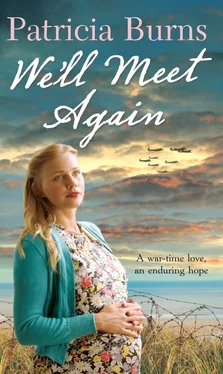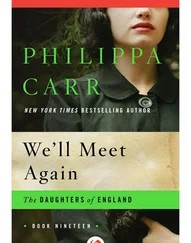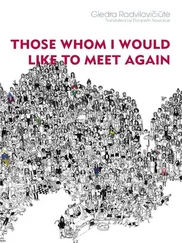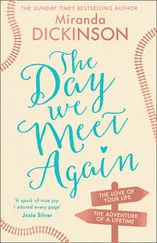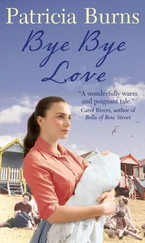But luck was not on her side. As the Suttons came out of the farmhouse she was just on the last row, by the fence that separated the field from the track. Once more, Beryl waved.
‘Hello, Annie!’
At first Annie ignored her, but as Beryl drew level with her, she was forced to give up pretending she hadn’t heard. She straightened up.
‘Hello, Beryl.’
She knew she looked dreadful. She was cold, wet and exhausted. Her face was raw red and her ancient work clothes were spattered with mud. Beryl was warm and dry and still glowing from sitting by the range.
‘Having a nice time?’ Beryl enquired.
Annie wanted to push her face in.
‘It’s my bit for the war effort,’ she responded. ‘What’s yours?’
‘We’re knitting mufflers for soldiers at my school,’ Beryl said. ‘They’re so grateful, poor things. They send us lovely letters thanking us.’
Annie said nothing. The thought of sitting at a desk and learning things instead of cutting cabbages was almost too much to bear.
‘I came top in French these exams,’ Beryl went on. ‘Je suis très fort en Français. I bet you don’t know what that means. It means I am very strong at French. My form teacher says that all educated people should be able to speak French, and she’s a history mistress. Tu es un cochon. I bet you don’t know what that means, either. That’s the trouble with only going to the elementary. Still, I suppose you don’t even need to know how to read and write to dig potatoes.’
‘I’m doing something useful, not just sitting round all day getting fat. Our pigs can do that,’ Annie retorted.
‘And this year I’m starting Latin. I bet you don’t even know what Latin is,’ Beryl said.
‘It’s a dead language. You see stuff written in it in churches,’ Annie said in a bored voice. ‘What’s the point of learning that?’
If she’d hoped to score a point, she was disappointed.
‘Well, of course an uneducated person like you wouldn’t understand. It’s still spoken by doctors and people at universities,’ Beryl retorted.
Annie gave a disbelieving laugh. ‘And you’re going to be a doctor, are you? Pull the other one!’
‘We all know what you’re going to be—a farmhand,’ Beryl said.
Annie was actually glad when Mrs Sutton and Timmy reached them.
‘Come along, Beryl, don’t hold Annie up. I’m sure she still has plenty to do. Good day, Annie.’
‘Good day, Mrs Sutton,’ Annie muttered.
‘Bye, Annie. Have a lovely time!’ Beryl called as she walked off down the track.
Annie choked back tears of frustration and jealousy. Beryl had everything—a rich, kind father, brothers to keep her company, a place at the grammar school. It wasn’t fair.
But then she remembered. Beryl didn’t have Tom. That almost made it all worthwhile.
THROUGH the long hard winter of 1940 to 1941, the people of the industrial cities and ports of Britain suffered the terrors of the blitz while the bombers of the RAF carried out Churchill’s promise to ‘give it them back’. Stray bombs and damaged aircraft crashed into fields and villages and towns, and even the quietest village had its German spy scare. The convoys crossing the Atlantic were harried by submarines, making scarce commodities even scarcer. Britons tightened their belts, worked harder and ate more frugally. But they did not think of giving in.
Annie laboured through the cold days, learning how to work farm machinery from the pool of modern devices now available on loan to farmers, on top of carrying on with the day-to-day work of running a dairy herd. Harder than either of these was keeping on the right side of her father. Praise, or even recognition of the huge part she played in the increased productivity of the farm, was out of the question. But when Walter was in a neutral mood, he did allow her the odd evening off. They were occasions to be savoured to the full.
An April Thursday saw her hurrying to meet Gwen outside the Roxy in the High Street. Gwen squealed when she spotted her and rushed to take hold of her arm.
‘You’re so late! I thought you weren’t coming.’
The two girls trotted arm in arm up the steps of the cinema.
‘I know, I’m sorry. The bus was ever so late, and when it did come it was an awful old thing. I think they’ve sent all their decent ones up to London,’ Annie explained.
‘We need buses just as much as Londoners do,’ Gwen grumbled.
They pushed in through the swing doors. Annie paused for a moment, looking around, making sure it was all just as grand as ever. She breathed deeply, taking in the smell of smoke and wet coats and the faint whiff of disinfectant. Yes, this was it. This was Life. Even in the dim wartime lighting, the entrance looked like a palace with its high ceilings, red flock walls, gold paintwork and shiny brass rails. Wonderful. It was like living in a fairy tale after the wet fields and the austere farmhouse. And it was all hers, for the price of a ticket in the front stalls.
‘Come on, dozy!’ Gwen was already at the ticket booth. ‘We’ve missed part of the first feature already.’
They walked to the stall doors and were escorted into the smoky darkness by the usherette and her torch. Trying not to stumble over people’s legs, they groped their way to their seats and subsided with sighs of pleasure. Settling back, they gave themselves up to fantasy. The sheriff’s posse thundered across the screen, the baddies galloped up into the rocks on the side of the valley, bullets whined and ricocheted, horses reared and fell. The good guys won.
‘That was good,’ Annie enthused as the credits rolled.
‘Yeah—’ Gwen’s accent had slid to somewhere in the mid-Atlantic ‘—sure was.’
A short cartoon came next. Tomcat chased Tweetie-Pie and failed yet again to catch him. The adverts rolled. Gwen elbowed Annie and offered a small paper bag.
‘Here—have a pear drop.’
‘Thanks, Gwennie! Can you spare them?’
‘‘Course—go on.’
Annie sucked off the rough sugar coating and let the gloriously artificial sweet fruitiness fill her mouth. Bliss.
The newsreel followed. Victims of the latest blitz on Birmingham were seen clearing up and fixing ‘Business as Usual’ signs to their damaged shops while smiling and making thumbs-up signs at the camera. Much was made of the successes in Eritrea and the huge bombing raid on Kiel.
‘I heard them going over the other night. They must have been heading for Kiel,’ Annie whispered.
‘They’re so brave, the RAF boys,’ Gwen said with a sigh.
That was quite enough reality. Now it was the big feature—a Busby Berkeley musical. Annie and Gwen were swept into a world of colour, song and dance. Time was suspended and nothing mattered but that the hero and heroine should end in each other’s arms.
The whole audience stood for ‘God Save the King’, and then shuffled out, chattering and laughing.
It was strange being back in cold, dark Wittlesham High Street. At least half of Annie was still prancing about in satin and feathers. The contrast made her feel quite light-headed.
‘That was just wonderful,’ she said, sighing.
But it was no use staying in Hollywood with your head in the clouds. There were practicalities to obey. The last bus left in just five minutes. The girls hurried to join the line of people climbing on board.
Gwen dived into her bag and produced an envelope. ‘Here,’ she said, ‘something to keep your pecker up.’
Annie took it and stared at the writing.
To Miss A Cross c/o Miss G Barker.
Tom. It was from Tom.
‘Already?’ she said, dazed. ‘I wasn’t expecting one for days …’
Читать дальше
